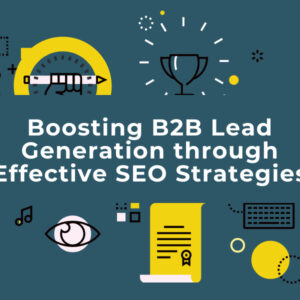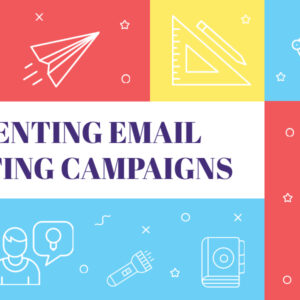Blogs have been around for a while and they’re still going strong. Whether you want to make it big on social media or just find a way to better connect with your customers, blogging is the way to go. A blog can also be a powerful marketing tool for your business. It offers all of the benefits of traditional media, but in a more affordable and convenient package. Blogs are also an easy and low-cost way to get your story out there. Here are some tips on how to start a blog and how to create one that will help you grow your business today.
Why You Need a Blog
Blogs are a valuable resource for any business. They offer an opportunity to reach your target audience with relevant and interesting content. Blogging also provides the ability to update readers about current events, promotions, and other important pieces of information. With a blog, you can easily guide your readers to take the next step towards conversion.
How To Create a Blog
A blog is a simple way to create valuable content. You can post anything you want on your blog, whether it’s about your latest product or service, information about the industry, or tips and tricks for your customers.
Blogs are easy to create and they don’t cost much money. They can be hosted on free platforms like WordPress or Blogger. You can also use a service like Nyamga to get affordable and competent professional to help you with blog design and content.
To create your own blog, all you need is an email address and some time to write!
The Importance of Keyword Research
Blogs, like any other form of content marketing, require a ton of work. This can include writing blog posts, setting up and maintaining your blog, and finding new topics to write about that are relevant to your target audience. As you create content for your blog, it will be important to do keyword research. This step is vital when it comes to SEO. It’s the best way to find the most popular search terms related to your business or industry. Once you find relevant keywords, make sure they appear in your blog post at least four times.
Content is King
Blogs are all about content. This means you’ll need to create posts that resonate with your audience. What kind of content should you be creating? Anything and everything! Blogs are a great place to post information, tips, tutorials, photos of your product or service in action, etc. You can also offer anything from exclusive offers to coupons for people who subscribe to your blog feed. There are tons of different types of content you can offer on your blog and it doesn’t have to just be about what you do or sell.
How to get the most from social media in your blog
One of the most popular social media platforms is Facebook. People are constantly posting on their feed or on their business page, which means there are loads of opportunities for you to advertise on Facebook. And if you’re not advertising on it yet, now is the time to start! There are many strategies you can use with your ads. But one strategy that stands out is using pictures in your ad campaigns.
In much the same way that companies outsource their marketing efforts to experts, outsourcing SEO provides a way for brands to identify key strategic goals and then leave the complex process of meeting those goals to industry experts.
Designing an effective SEO strategy isn’t a simple task. Companies have to consider how search engines are evaluating the content, what aspects of SEO offer the most impact, and where they could change their current content to better align with search engine expectations. This is especially critical as search engines like Google continually refine their ranking process. For example, page loading speed is now a factor in search result rankings. In practice, this expands the role of SEO; it’s not enough to simply weave in popular keywords and deliver high-quality content. Brands also need to consider the entire user experience.
Socialmedia offers many benefits for businesses such as connecting with customers and building brand awareness by providing them with valuable information through blogs or social media posts so they’ll stay engaged with your company long-term.
Find Out What Your Audience Likes and Needs to Know
When it comes to creating a blog, you need to know what your audience likes and needs to know. What are their interests? Is there anything they want to learn more about? If you answer these questions, then you’ll have a good idea of what content you should include on your blog.
Develop a Strategy with Your Social Media Plan
Your blog doesn’t need to be a place where you write your deepest thoughts and feelings. It should be a business tool, so use it as one. That means you need to develop a strategy that intertwines your social media plan with your blogging goals.
Stay consistent with posting frequency, post headlines that are engaging, and have a call-to-action (CTA).
If you know what your CTA is going to be before you even start the blog, this will make writing the posts much easier. Decide if you want people to sign up for your newsletter or contact you about services offered by your business. The more specific the goal for each blog post, the better chance of people taking action on whatever it is that you’re trying to do with them.
Write Engaging Posts That Are Relevant to Your Brand and Audience
When you first start your blog, it can be tempting to jump right into talking about things that are important to you, but don’t necessarily pertain to your business. This might make sense for personal blogs, but for a business blog, this is a big mistake. You need to be sure that the posts on your blog are relevant and engaging to your audience. In fact, people are more likely to share content that they think offers value to their social media followers or other contacts than something with no context or marketing message. One way you can do this is by providing exclusive access to products and content on your blog.
It’s also important not to overwhelm readers with posts on topics that aren’t related to your brand or product line in some way. Your readers will probably just delete the email if they see an article about a new release of Apple’s latest phone because it doesn’t offer them anything in return.
How to Get More Comments on Your Blog via Social Media
If you want to get on social media and have your blog posts seen, make sure that you connect your blog to the appropriate social media platforms. For example, if you are on WordPress, there is a plug-in made specifically for this called Share2Social. This plugin allows you to add social media sharing buttons to each blog post so people can share it more easily on Facebook, Twitter, LinkedIn and Google+. On top of that, it also alerts your followers when you publish something new.
The next step is to think about what you want out of the blog post and what will fit the platform best. This will help you tailor your posts for different audiences. For instance, if you’re writing an article about how to start a small business for LinkedIn, then the tone should be professional and educational with a bit of personality thrown in there as well. If it’s for Facebook or Twitter however, then it should be more conversational in tone with some stories mixed in here and there.
Lastly, use hashtags when posting on social media so that others can find your content easier!
Conclusion
A thriving blog is one of the best ways to establish your business as an authority in your industry and drive more traffic to your website. But it’s not a simple task. We have compiled a list of the best tips and tricks to help you create a blog that will grow your business and increase your success.
You’ve seen the importance of social media in marketing, but it’s even more important for blogging.
Social media may be the best way for you to get more comments on your blog and build relationships with new readers.
We’ve included a few tips on how to get more comments on your blog via social media in this blog post.
The more you know about blogging, the more successful it will be for you as a business owner.
If you need help getting started, contact Nyamga to get connected to the best professionals.







